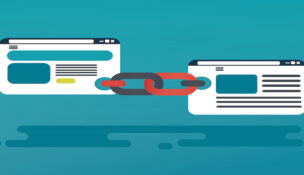Are buyers liars?
Gary Harvey //November 8, 2010//
Buyers aren’t bad people. But often times, they mislead salespeople by not giving honest information. They tell “little white lies.” We’ve all done it.
Reasons that buyers mislead/lie:
• Buyers don’t want to give up control.
• They don’t want to be pressured or give information that could be used against them.
• They don’t trust or feel comfortable with the salesperson.
• They don’t want to feel bamboozled into buying something they don’t need or want.
• They are skeptical and have their guard up.
Salespeople have trained buyers to feel this way. Some salespeople are cursed with the stereotypical image of the high-pressure, fast-talking, conniving peddler who taints the credibility of other salespeople. Such salespeople represent only a small percentage, but all of us have been exposed to these types. Truly professional salespeople use non-pressure techniques to help buyers “discover” their reasons for buying.
Three ways people prefer to buy:
People like to buy; they don’t like to be sold. When salespeople sell a product’s features and benefits without understanding the true reasons a customer buys, the barriers go up and the buyer resists.
Traditional sales training encourages people to “ask for the order.” There is only one person who can do this: the customer. Instead, do the unexpected and ask insightful questions vs. talking about features and benefits to help them “discover” how your product or service provides the solution to their need or solves their problem. Ask questions such as:
• Tell me more about that…
• How long has that been a problem? And have you tried to fix it? Did it work?
• How much is the problem costing you and how do you feel about that?
• What will happen if you don’t get results for x; how will that impact you?
Buyers like to purchase from people who are like them. Ever been on a sales call with a prospect and the chemistry was right on? The prospect felt comfortable with you and there was a bonding. Behavior skills that help you adapt and appear to be more like the buyer help put the prospect at ease. If these skills become part of your selling process, people will feel more comfortable with you because they believe you are more like them. For example, mirroring is a technique where you subtly mirror the prospect’s behavior. If they lean forward, you lean forward, if they talk softly, you talk softly, etc.
People buy emotionally and justify it intellectually. Salespeople rarely understand the buyer’s emotional needs because they spend so much time on the intellectual side – features and benefits. Buyers lead salespeople into this process by giving off intellectual smoke screens like, “I’ll think it over,” “We’ll get back to you,” or “Call me next week.” Instead, if salespeople can lead buyers into emotional involvement, they will hear the truth: either “Yes, we will do business ,” or “No, we won’t.” Anything in between proves that the salesperson is talking, but the buyer isn’t listening.
Reasons why salespeople make prospects feel uncomfortable:
• They flaunt their knowledge.
• They use buzzwords. Think of buzzwords in your industry and try not to use them.
• They insult the prospect’s past decisions by suggesting their product or service does it better. This isn’t intentional, but people will defend their bad decisions to the death if we bring them up.
If your selling system doesn’t address the real reasons why prospects buy, find a system that will. Selling is demanding. Understanding human behavior will give you the edge to close more sales over your competition.
{pagebreak:Page 1}
Gary Harvey is the founder and president of Achievement Dynamics, LLC, a high performance sales training, coaching and development company for sales professionals, managers and business owners and is the recipient of the David H. Sandler Award, awarded to the top Sandler trainer in the world. His firm is consistently rated by the Sandler Training as one of the top 10 training centers in the World. He can be reached at 303-741-5200, or [email protected].

























